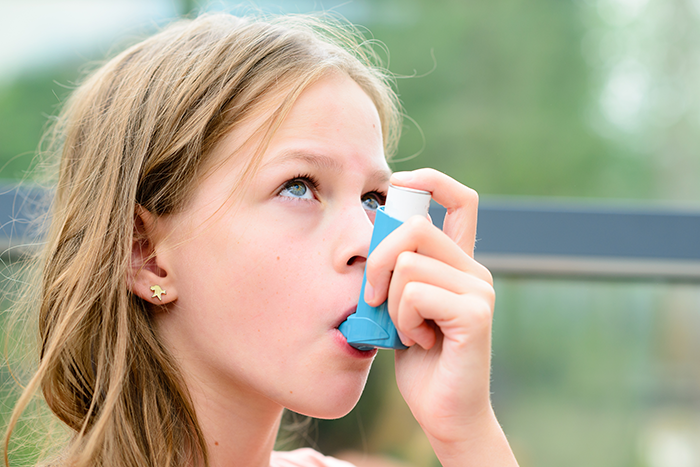
21 Feb Signs Your Child May Have Asthma
2 min. readAsthma is an unfortunately common condition impacting many children today. In fact, according to the Asthma and Allergy Foundation of America, it is the most common chronic disorder among young people. If your child has asthma, it is so important that you get this condition diagnosed so that you can help your child get the care and treatment that they need.
The good news is, there are many ways to help treat the symptoms of asthma and to help your child gain better control of their ability to breathe. The first step is to make sure that you know some of the most common signs and symptoms of childhood asthma. Here are some of the most common telltale signs of childhood asthma.
- Difficulty breathing, especially after common everyday activities, such as playing, walking up the stairs or walking around.
- Wheezing or whistling when breathing.
- Experiencing tightness or discomfort in the chest, particularly when trying to catch your breath.
- A persistent cough that tends to worsen in the evening, or right before bed.
- Having an uncontrollable fit where it is difficult for your child to breathe or catch their breath.
- Unexplained fatigues, particularly when your child is playing.
If you have noticed some of these signs and symptoms, then you should make an appointment with your child’s pediatrician. At this time, your child’s doctor, will perform a physical exam and perform tests to determine how much air is in your child’s lungs, and how quickly your child is able to exhale.
Asthma is a very serious condition, and unfortunately, there is no cure for this condition. However, there are medications, including inhalers that can help control the symptoms of asthma and to help prevent the frequency, and the severity, of asthma attacks. Your doctor will be able to help you and your child understand not only how to use these medications, but when to use these medications to help control symptoms and inflammation and to help your child maintain a better quality of life.
If you have questions about asthma and whether or not your child may have asthma, then the professionals here at Continuum Pediatrics can help. You can schedule an appointment by calling 817-617-8600 so you can get a better understanding of what may be going on with your child’s health.

